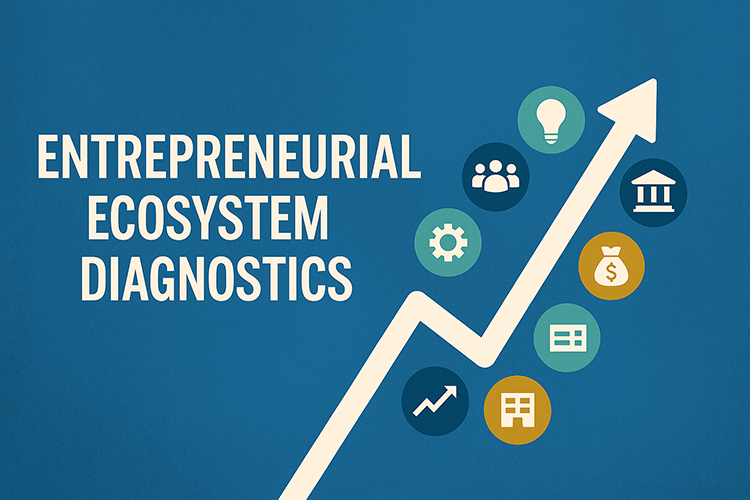2025-06-03
indicators

The OECD has released its inaugural report on Entrepreneurial Ecosystem Diagnostics, offering a pioneering tool to assess the strengths and weaknesses of entrepreneurship environments across all 38 OECD member countries. The study marks a significant step in providing data-driven insights to inform national policies aimed at supporting startups and business growth. Entrepreneurial ecosystems—defined as the network of actors, institutions, and resources that foster entrepreneurial activity—have become central to policy discussions in recent years. However, consistent and comprehensive measurement tools have been lacking. The OECD’s new diagnostic framework addresses this gap, enabling cross-country benchmarking and offering policymakers a foundation for deeper analysis and strategic reforms. The report measures ten core elements critical to entrepreneurial ecosystems: Institutions, Culture, Networks, Infrastructure, Markets, Finance, Knowledge, Talent, Leadership, and Intermediate Services. Each element is quantified through composite indicators based on around 40 variables, and outputs are evaluated with a focus on productive entrepreneurship—business ventures that generate employment and innovation. Key findings highlight substantial variation in ecosystem quality across countries. Leadership, Markets, and Knowledge emerged as the areas with the widest performance gaps, signaling potential for targeted policy interventions. Countries like the United States, the United Kingdom, and Switzerland lead on multiple ecosystem elements, while others such as Colombia and Costa Rica show room for significant improvement. The study also tracks how ecosystems have evolved over time. For instance, France improved its Institutions scores through regulatory reforms, while Portugal, Lithuania, and Poland advanced in Talent development by enhancing digital skills education. Meanwhile, Estonia and Türkiye made notable progress in Infrastructure. In addition to national-level assessments, the report explores regional and social variations in entrepreneurship. Countries such as Belgium and the Netherlands exhibit relatively even start-up activity across regions, whereas Chile and Slovakia show higher disparities. Similarly, countries like Sweden and Ireland display less disparity in start-up rates among women, youth, and seniors compared to middle-aged men. The report features case studies of notable national initiatives aimed at ecosystem development, including France’s “French Tech” program, Italy’s “Startup Act,” and the Netherlands’ “TechLeap” project. These initiatives illustrate holistic approaches that simultaneously address multiple ecosystem elements and empower entrepreneurs directly. Looking ahead, the OECD plans to expand and refine this diagnostic tool, with aspirations to incorporate more subnational data and develop deeper econometric analyses. The goal is to foster better-informed policy decisions and promote resilient, high-growth entrepreneurship across OECD countries. For policymakers, the report serves as a critical starting point for identifying ecosystem bottlenecks and fostering data-driven dialogues to design more effective entrepreneurship policies.

